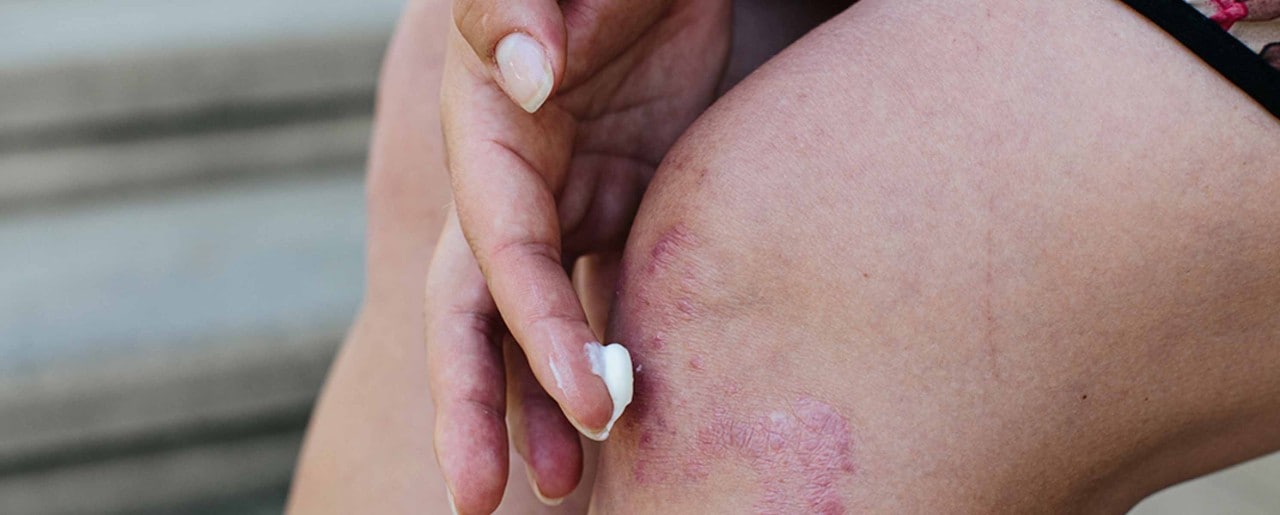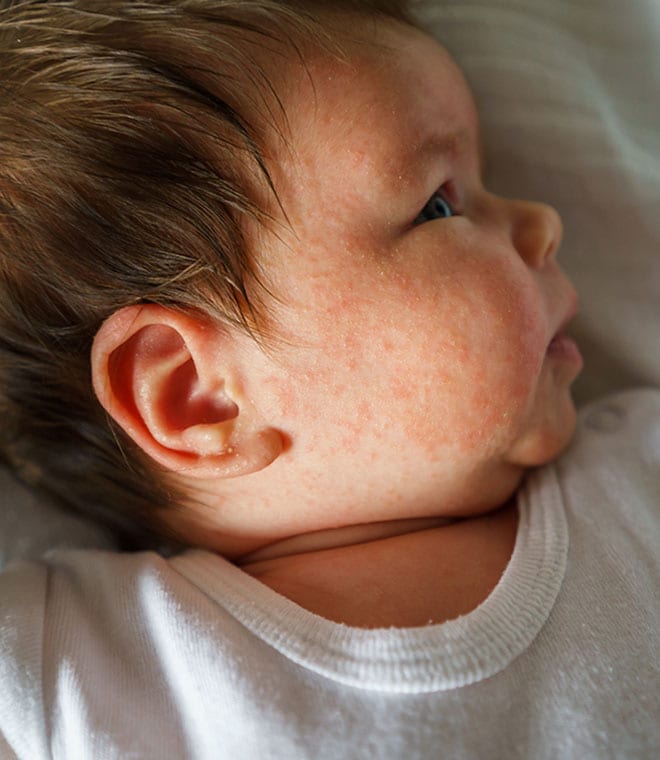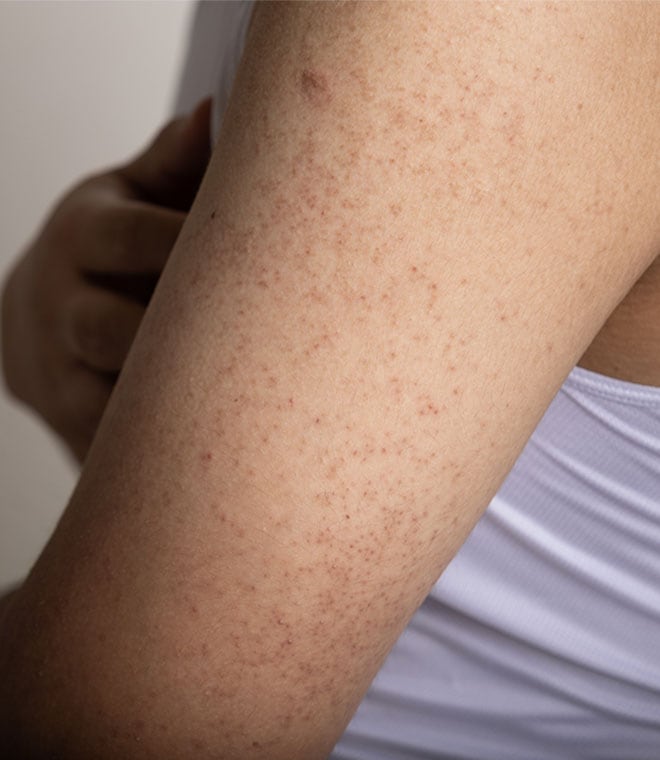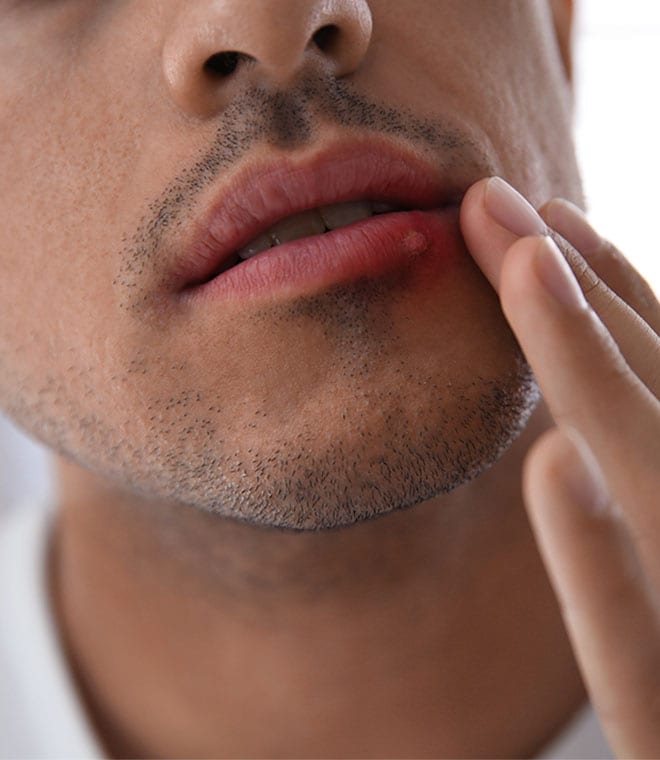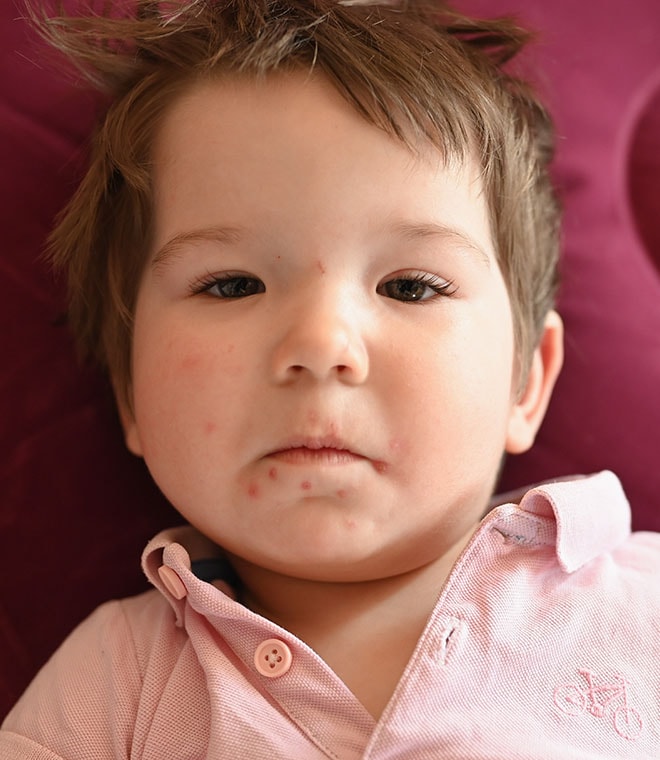Health
What is the difference between eczema and psoriasis
By Anna H. Chacon, MD, Fellow of the American Academy of Dermatology Jul 25, 2023 • 5 min
What is psoriasis?
The body continuously produces new skin cells to replace old, dead cells from the surface of the skin. The dead cells are then shed through the skin’s natural turnover process. Psoriasis is a chronic skin condition that occurs when skin cell production occurs at an abnormal rate, leading to the development of thickened patches of skin.
What is eczema?
Another chronic skin condition, eczema may occur due to many factors, such as genetics and environment. The condition causes dry, irritated skin. When this happens, the skin’s natural protective barrier grows weak.
Psoriasis vs. eczema
There are a number of factors that differentiate eczema from psoriasis. The following are some of the major differences between the two conditions.
Causes
Eczema and psoriasis have distinct causes. Psoriasis is an autoimmune condition. The immune system mistakes healthy cells as a threat and attacks them to protect the body. The activities of the immune system are what cause skin cells to grow at an accelerated pace.
Although the immune system may also play a role in eczema, this skin disorder isn’t an autoimmune disease. Instead, it can occur when the immune system mistakes something that you come in contact with, such as skin care products or pollutants, as a threat. In response, the immune system prompts the release of chemicals that trigger inflammation, leading to an eczema outbreak.
Prevalence
Overall, eczema is more common than psoriasis, affecting about 32 million people in the United States. Psoriasis affects about 7.2 million. Some people do develop both skin conditions. However, it’s rare to have both psoriasis and eczema.
When it starts
Symptoms of eczema and psoriasis can appear for the first time at any age. However, eczema often begins during infancy and childhood, while psoriasis most commonly starts between ages 15 and 35.
Rash characteristics
The rashes caused by psoriasis and eczema generally appear very different. Here are some key distinguishers:
- Pattern: Psoriasis is more likely to be well-defined than eczema.
- Thickness: In most cases, rashes caused by psoriasis consist of more layers of skin and are thicker than those associated with eczema.
- Texture: Eczema may appear leathery or crusty, while psoriasis tends to look scaly.
The location of the rash can also give a clue about whether the cause is eczema or psoriasis. However, both conditions can affect any area of the body. Generally, eczema appears in skin folds, particularly behind the elbows and knees. The most common places to develop psoriasis are the outer edges of the elbows, knees, buttocks and face.
Psoriasis and eczema can both lead to rashes on the scalp. Both conditions often show up as flaky patches of skin, making it more difficult to determine if the rash is scalp psoriasis vs. eczema. The key difference is that psoriasis patches often appear oily, and they’re more likely to extend beyond the hairline.
Additional symptoms
Itching is a common symptom of both psoriasis and eczema. However, itchiness associated with eczema is often more intense. Soreness and pain are more commonly associated with psoriasis but can occur with eczema as well, particularly if the rash becomes irritated due to scratching.
Approximately 1 in 3 people with psoriasis develop psoriatic arthritis, a condition marked by joint pain and inflammation. Joint pain is not a symptom of eczema.
Do I have eczema or psoriasis?
It can be difficult to tell if you have eczema or psoriasis on your own. Your healthcare provider may be able to determine whether you have psoriasis or eczema with a simple physical examination. If not, they can order tests such as a skin biopsy or other tests to arrive at a diagnosis. Then, they can develop a treatment plan to address your symptoms and help you manage psoriasis or eczema going forward. In some cases, over-the-counter psoriasis and eczema treatments may be helpful in managing symptoms.
Updated July 2023.
Sources:
- https://my.clevelandclinic.org/health/diseases/9998-eczema
- https://nationaleczema.org/blog/eczema-or-psoriasis/
- https://www.pennmedicine.org/updates/blogs/health-and-wellness/2022/march/psoriasis
- https://my.clevelandclinic.org/health/diseases/6866-psoriasis
- https://www.psoriasis.org/advance/psoriasis-or-eczema-atopic-dermatitis/
- https://www.mayoclinic.org/diseases-conditions/psoriasis/expert-answers/scalp-psoriasis/faq-20058544
- https://www.aad.org/public/diseases/eczema/childhood/child-have/difference-psoriasis
- https://www.psoriasis.org/psoriasis-statistics/?gclid=EAIaIQobChMInf_Vw56ggAMVykpHAR0xJwHLEAAYAiAAEgKxz_D_BwE
